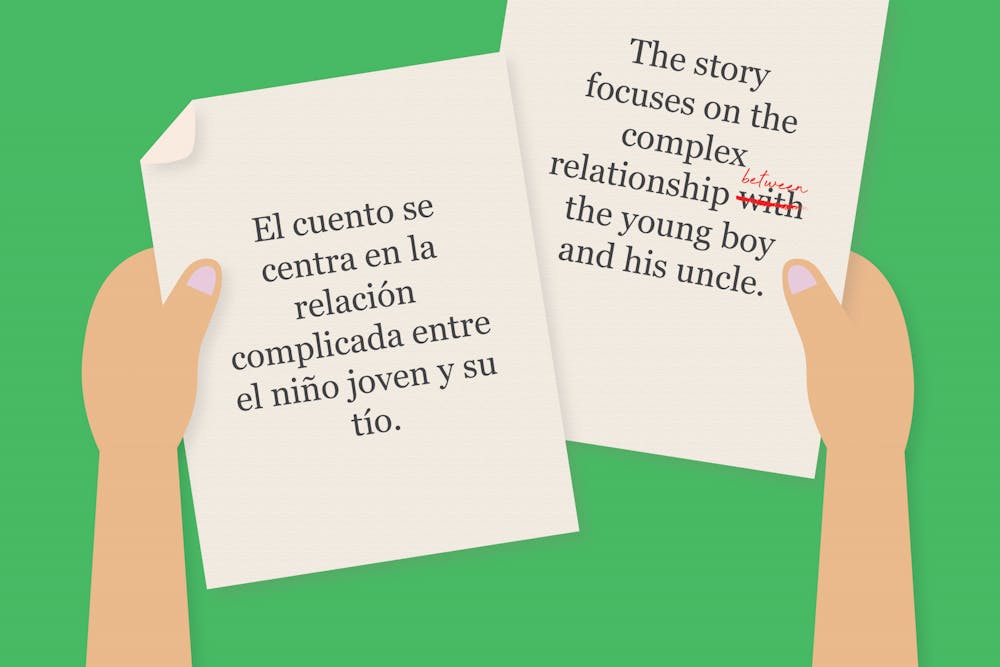
Have you ever wondered what it is like to go to college in a foreign country where you will have to speak, read, and write in a different language? Well, let me tell you that attending any university, especially an Ivy League institution, is challenging enough, and if you add to this the complexity of converting the information you receive from your professors, classmates, and friends to your native language, for me Spanish, we are talking about a task that will always require extra effort.
The situation of every international student is different, and proficiency in the English language varies a lot from student to student depending on where you went to high school or whether your parents are bilingual. Studying in a foreign language has many benefits like improving memory, enhancing the ability to multitask, improving networking skills, providing better career choices, or making new friends. But it also has some disadvantages.
As a non-native English speaker at Penn, classes are more challenging. According to Santiago Velázquez, a rising College sophomore from Ecuador, “you have to pay 100% of your attention to get the full idea of what the professor is saying.” Personally, when I have an assignment to write, the online translator is my best friend. If the topic of a paper is complex, I usually write it in Spanish first before translating it to English because I feel safer, and certainly, I have a broader vocabulary in my native language. Plus, reading and writing in English take me more time. Similarly, when I am in an interview or speaking with a friend, I have to take some time to translate my thoughts before saying them.
There are occasions in which my engagement and intelligence are limited by my language skills. Despite having the perfect answer in my head, I sometimes don’t share it, and if I do, it doesn’t always sound like I meant it to. I may not have the necessary vocabulary to describe a specific idea, so it may end up sounding too simple, or people may not see the essence of the concept, and would rather pay their full attention to my accent.
“Being afraid to participate is one of the most challenging aspects of studying in a foreign language,” said Robert Ciobanu, a rising Wharton sophomore from France. For me, I continuously find myself in situations in which the professor asks a question, and even though I may have the right answer, I stay quiet because I am afraid of the possibility of committing mistakes in my grammar or pronunciation.
It is even more difficult to be valued in subjects that require a lot of writing and participation. Expectations and differences can be noticeable and put international students like me, whose first language is not English, at a disadvantage. We take more time, and native students, teachers, or colleagues may think that we have some deficiency in knowledge when it is just a matter of language.
Language is more than just a combination of words. A different language usually brings a different culture. I am a foreigner immersed in a whole new world. The food is different, the climate is different, politics are different, and most importantly, people are different. I am the one who decided to come here in the first place to receive the best education I can. I came here to work hard socially, academically, and personally. The disadvantages that I and probably other non-native speakers at Penn have are difficult obstacles that we have to live with every day. But also, these “disadvantages” are positive challenges that every day help bring me closer to fulfilling my dream of graduating successfully.
To help us, Penn should create more opportunities for improving our English language skills. For example, it would be nice to have more public speaking and writing classes to the growth and improvement of English as a second language students. Clubs need to take into account that their interviews and applications are hard enough for any student. Judge us for our potential, and the people we are, not just based on a five-minute-long questionnaire. For professors, please be a bit more lenient and understanding when an international student presents you with a writing assignment or makes a live presentation. And finally, friends, remember that when you laugh at our accents, part of our alma mater’s richness is in diversity.

PEDRO SALTOS MONTENEGRO is a rising Wharton sophomore from Quito, Ecuador studying Finance and Business Analytics. His email address is spedro@wharton.upenn.edu.
The Daily Pennsylvanian is an independent, student-run newspaper. Please consider making a donation to support the coverage that shapes the University. Your generosity ensures a future of strong journalism at Penn.
Donate







